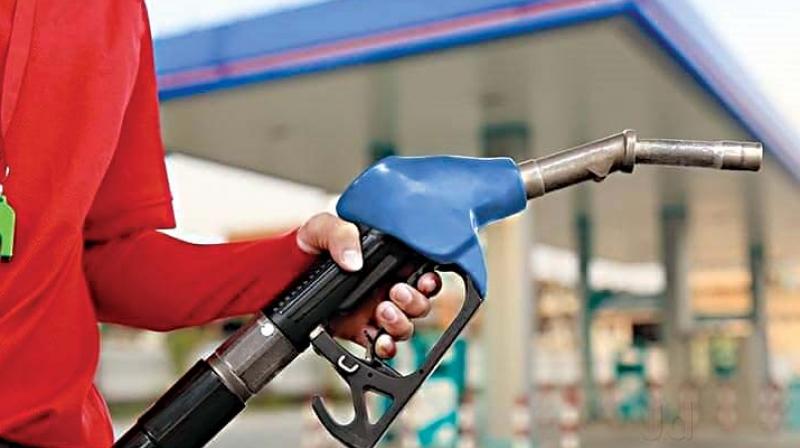High oil prices may spoil party for BJP in 2019
In 2018, petrol price in Mumbai has already reached Rs 85.93 a litre on May 27.

New Delhi: The ruling BJP-led NDA government could have a tough time convincing the electorate that it deserves a second term in 2019, if one measures electoral fortunes of political formations based on public perception built over rising fuel prices ahead of general elections.
The previous Congress-led UPA government had lost the elections in 2014 when petrol prices had soared in September 2013 to Rs 83.67. This is almost identical to price trends under the current NDA government now when petrol prices have already crossed all-time high levels and have shot up to Rs 85.93 in Mumbai and may rise further till September the in absence of any duty cut by the Centre and the states.
In the past, skyrocketing onion prices had political parties in tears. But In 2013, prices rose up to Rs 100 per kg in north India. Expensive edible bulb did the Congress Delhi and Rajasthan. History says onion prices played a big role in unseating the first non-Congress government at the Centre in 1980
“This coincidence should not be brushed aside by the ruling party that is looking to win the 2019 elections again riding high on continuing popularity of prime minister Narendra Modi. Public perceptions change fast and if the current price rise continues, it would be difficult to tone down public anger and get their favour in the form of votes again,” said an official of oil marketing firm not willing to be named.
As per government data, price of petrol rose to its highest levels in the last two years of UPA regime. In Mumbai, petrol price reached Rs 78.57 in May 2012 and again reached its peak at Rs 83.62 in September 2013. Though UPA lost elections on several other issues in 2014, its inability to control fuel prices played a big role.
What is interesting is that petrol reached its highest point in FY13 and FY14 when average crude price of Indian basket stood at a staggering $107.97 and $105.52 a barrel respectively. Moreover, during those two years the central exercise duty the two products worked out to be lesser by Rs 10 a litre on petrol and Rs 11 a litre on diesel. This meant that despite high global oil prices, UPA could manage to keep fuel price at relatively manageable levels through a mix of higher subsidies and lower duty.
Contrast this with oil price situation now, it becomes ample clear that NDA government is focusing more on preventing its revenue sources by keeping excise duty on petrol and diesel high than offering consumers lower fuel prices.
Highest petrol price Mumbai stood at Rs 79.99 (on October 3) in 2017, while the average crude oil price of Indian basket stood at an average of mere $56.43 in FY18. In 2018, petrol price in Mumbai has already reached Rs 85.93 a litre on May 27, considering that average price of crude stood at $69.30 in April and is expected to close a tad higher at $72 a barrel in May.
“There is ample scope to provide relief to consumers even if only Centre takes the forward step and cuts excise duty. We should remember that NDA government raised excise duty on nine occasions between November 2014 and January 2016 increasing its excise collections from mere Rs 99,184 crore in FY 15 to Rs 2,42,691 crore on FY17 and almost similar collections in FY 18. Now its time for cuts and there should not be any reluctance,” said a member of oil consumers association .
The high levels of oil subsidy during UPA regime was on account of government compensating OMCs for selling petrol and diesel below market price during administered price regime . The government deregulated petrol prices in 2010 and diesel prices in 2014 after which OMCs are free to fix its price.

